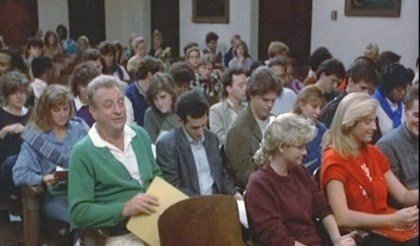How to Get a College Education Tuition-Free!
Would you believe it is possible to complete your undergraduate degree and even an advanced degree without paying for tuition? Scholarships or tuition reimbursement programs are the first options that come to mind, but there is another way. It has many advantages, but one must be patient and persistent.
Strategy
The strategy is to get employed by a college or university, or by a non-profit organization that receives funding through academic partnerships. Tuition waivers (or discounts) are usually included in the benefits package for all employees of academic and research institutions, regardless of their position in the organization. The employee’s spouse and children are eligible as well.
College is Just Another Business
After all, academic institutions are just like any other business or manufacturer. The difference is that the intangible products they are selling include education, specialized knowledge, expertise, community service, and research. The currency exchanged by these college businesses is called “tuition.” The customer is the student, who pays tuition to purchase the products or services “sold” by the institution.
Funding
Public institutions also receive government funding you’ve already spent anyway in the form of taxes. Private universities depend on donations and endowments entirely, but all non-profit organizations including public universities benefit from charitable donations. Research is funded primarily through competitive grants from government and non-government sources. The university, which supplies buildings, utilities, labs, support personnel, administration, benefits, etc, shoulders a portion of the grant funding and other infrastructure required to carry out the research.
Infrastructure
The infrastructure required to produce these commodities is comparable to a small city or town: Buildings and facilities for carrying out business, housing for residents, dining and entertainment facilities, shopping centers, administration, utilities, transportation, health care, mail services, law enforcement, fire and safety, sports, recreation, maintenance, landscaping, religious organizations, social services, and just about everything else that constitutes a community applies to a typical college campus. That means employees are needed with a wide range of skills, trades, abilities, and experience to support the day-to-day operations and carry out the functions of the institution.
Overview
I grew up with friends who aspired to continue their education but for various reasons their dreams and potential were suppressed. Fortunately, we lived in a “college town” and the local university was one of the largest employers in the area. Some used their vocational skills to become university employees and earned their degrees, one or two classes at a time, while raising families and buying homes and property. They were livin’ large compared to the average college student, and they could focus more intently on each class. Furthermore, they had the time to mature and become more confident about what they wanted to study and how they could use their credentials more effectively after graduation. Often, a door was opened to promotion within the university or a better job offer was available elsewhere having now earned a college degree.

My Personal Example
Upon graduation from high school, I enrolled at Western Kentucky University (WKU) in 1975 and graduated in 1979 with a B.S. in Chemistry and Biology. Although I had a small scholarship my freshman year, I took out student loans and paid for my tuition and undergraduate degree in the usual way.
Although I knew for sure I wanted a career in hands-on scientific research at the lab bench, I chose to seek employment rather than go directly to graduate school. I wasn’t sure about the particular field I should specialize in to make a living over the long haul. Fate intervened, and I got my first job offer at the Biology Division of Oak Ridge National Laboratory (ORNL), just a three-hour drive from home. It was perfect: I loved hiking and I could see the Great Smoky Mountains from my house!
There I found my niche in DNA research and my career now had a direction. I worked and lived in Oak Ridge, Tennessee but a National Science Foundation grant administered by the University of Tennessee, Knoxville (UT), funded the project I was working on. That made me an employee of UT. As such I was entitled to the full benefits package offered to UT employees, which allowed me to take one or two classes per quarter. My spouse and children could do the same. I started taking classes in 1980 and received my M.S. in Biomedical Science in 1986.
The only expenses I had were my textbooks and school supplies. It should be pointed out that my Master’s thesis had to be a separate project from those I was working on at my job, so I spent an extra few hours per day at work to take on a new project. During this time my first child was born.
After earning my M.S. I worked at Procter & Gamble and St. Jude Children’s Research Hospital. I returned to Oak Ridge and again was employed by UT at the Center for Environmental Biology (CEB) from 1992 until 1995. Again I took advantage of my benefits and passed 33 credit hours of doctoral classes in Environmental Toxicology and Applied and Environmental Microbiology. During this time my second child was born.
From 2000 until 2011 I was employed by my undergraduate alma mater, WKU, as a Laboratory Coordinator and Principal Investigator with my own grant funding. As permitted in my benefits package, I took postgraduate classes in geoscience, karst geomorphology, and speleology while developing new DNA methods for analysis of water quality and to study microbiology and biogeochemistry of caves.
Summary
Employment at a university or affiliated research institution typically allows one to take one or two classes per semester tuition-free. Colleges and universities are microcosms of small communities and require the same services and infrastructure as a typical small town, meaning there are many non-academic essential employment opportunities. The time required to complete a degree takes longer, but the student is gainfully employed and receiving a benefits package instead of going into student loan debt. In addition to the obvious tuition savings by using this strategy, there are some additional important advantages:
- Non-traditional students can have a second chance to attend college if they did not have the opportunity immediately after high school graduation. Often they are more determined and have a greater sense of direction than younger students.
- It is possible to raise a family, buy a home, and perhaps start saving money instead of taking out student loans. If in fact you do need to take out a loan, you may still be eligible for traditional federal student loan programs.
- Limiting class load to one or two courses at a time allows you to devote more attention to the subject material, earn a higher grade in the course, and results in fewer distractions than a full-time curriculum.
- The experiences gained through employment will enhance your academic credentials. Job experience and military experience can qualify in lieu of educational credits, and upon graduation the student not only has a degree but also has valuable job experience.
Conclusion
I hope this account of my experience as a university employee and part time student is instructive to anyone looking for an alternative strategy to earn a college degree or even pursue graduate school. The experiences I gained working as a lab technician and research associate gave me years of expertise in a wide variety of disciplines. By having the experience, I was able to attain positions that normally would require a Ph.D. In retrospect, I wish I had taken some courses outside my area of expertise, particularly in business and finance.
The nature of academic scientific research is that it is heavily dependent on grant funding through grants from governmental and non-governmental benefactors and can be highly competitive and volatile, depending on economic factors. This is commonly called “soft money” in the academic community because it is a third party contract usually guaranteed for about one to three years with the possibility that funding my not be renewed. If I had the skills and education to run a business, there were times when I could have started my own lab instead of depending on colleagues and associates in my network who had unfilled grant-funded positions.

In addition to the opportunity for you and your family to take courses, working for a university has many other advantages and benefits. Employees sometimes get season tickets to sporting events, special discounts around town, access to libraries and cultural events. I was fortunate to travel to Europe and Asia as part of university research projects and partnerships. Please follow me and I will write about my adventures in future posts. Also, please reply and comment on this post and I can give more specific information and answer your questions.



Hey man! Great job quoting your sources in-line, especially with your images! Overall you see quite good with the format for steem and I cannot wait to see what someone with your experience can do! Good luck mate! Cheers!
Thanks for the feedback! I had to edit the links several times to finally get them right. I don't know HTML, so I'm using the editor. I'm very proficient with Word, so some of the formatting I'm accustomed to eludes me at this point.
I see you're a Biotech/Law student. I've trained several students who combined those disciplines. In the 1980's, we were one of the first to publish observations that differences in microsatellite copy numbers were different among different individuals.
Great article. Student debt is a modern form of indentured servitude. Without an education, it's hard to advance, and in order to get an education the young barter years of their lives, in many cases. Your idea is one way to avoid onerous debt. Another is for people to become politically active and insist that an affordable college education is as essential today as a high school education was two generations ago. College should be free. Would be good for students, good for society. I did go free, on scholarship, and as years go by realize what a benefit that was.
Amen brother! We need the European system.